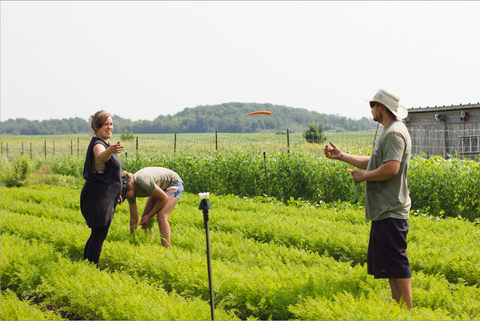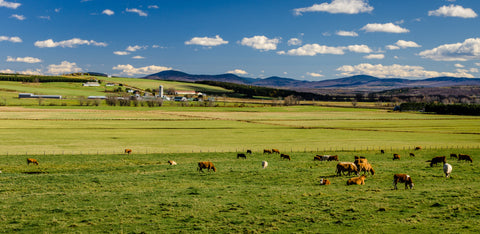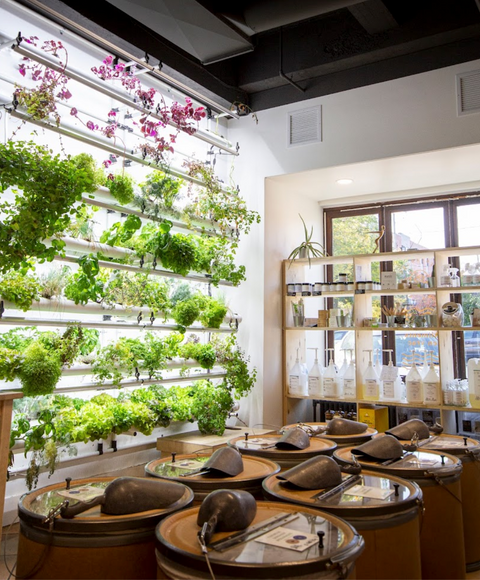Organic, what does that mean?
In recent years, the organic food market has grown enormously. However, many of us don't know what "organic" exactly means and why it is so beneficial to incorporate it into our diet.
Organic vegetables come from organic farming. This means that these foods do not contain pesticides, chemical fertilizers or GMOs. In addition, organic farming aims to develop operating methods that are in harmony with the environment. Eating organic therefore has several benefits, both for our health and for the environment.
For human health
Eating organic means choosing to limit your exposure to pesticides and chemicals harmful to your health. Indeed, in organic farming, the use of synthetic chemicals such as pesticides is prohibited. Pesticides can have serious consequences on our health. People who repeatedly ingest pesticides can, in the long term, develop problems with their fertility, the balance of hormones in their body, their immune system and many others.
In addition, studies carried out during the BioNutriNet project prove that eating organic foods benefits our health. Frequent consumption would, among other things, reduce the risk of cancer by 25%.
For the preservation of our soil and water
Instead of using chemical fertilizers, organic vegetable farmers use composts and green manures, ideal for soil fertilization. Additionally, they use conventional or certified organic seeds instead of genetically modified seeds, which nourishes and regenerates the soil. Also, in organic farming, natural substances are used for food preservation, not synthetic preservatives. Finally, it is through biological control that unwanted insects are controlled and not through the use of synthetic chemical pesticides.
You should know that several other methods are used in this type of agriculture, focused on respect for the environment. Since it is the “natural” that is put forward and not the “chemical”, there is no water contamination or soil deterioration in organic farming. Conversely, industrial agriculture wastes and pollutes water by infiltration of toxic products into the soil and rivers, thus killing aquatic fauna and flora.
To counter global warming
Eating organic vegetables helps fight global warming. Let us remember that greenhouse gas emissions are the main cause of climate change. In organic farming, GHG emissions are limited by the use of organic fertilizers whose production does not emit CO2. This therefore makes it possible to reduce greenhouse gases in the atmosphere and, thereby, helps to counter global warming.
To say no to GMOs, a danger for the environment
The use of genetically modified organisms in organic farming is extremely limited. Their use is, in fact, prohibited. Only minor accidental traces of GMOs are accepted in processed products. Genetically modified plants can reproduce with other plants. Developed to resist against anything, these plants grow out of control. These crops pose a risk to soils, ecosystems and biodiversity.
All in all, we can realize that consuming organic vegetables is both good for our health and good for the environment. Paying attention to our health and our planet is definitely worth the cost!
You can visit our online store to discover our different products from ethical and sustainable farms!
Sources used for writing this article:
Zero Waste Planet. 10 serious benefits of eating organic. Zero waste planet. https://planetezerodechet.fr/manger-bio-avants-agriculture-biologique-environnement/
Quebec Organic. The benefits. Quebec Organic.https://quebecbio.com/bio/bienfaits .






Comments (0)
There are no comments for this article. Be the first to leave a message !